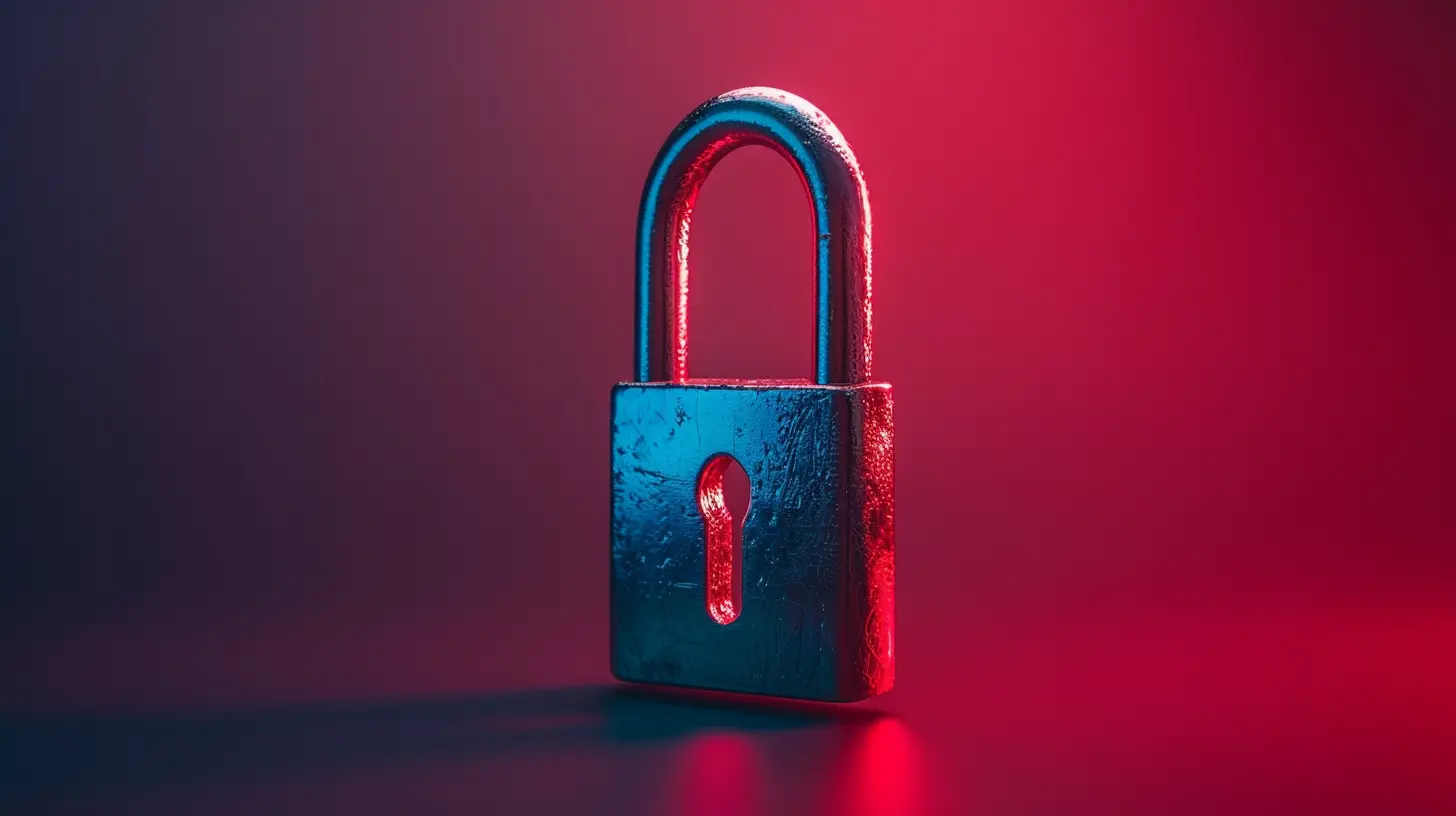Mastering Data Privacy: Best Practices for Securing Your Personal Information
2 May 2025
In today's digital age, safeguarding personal information has never been more critical. With cyber threats lurking around every corner, taking proactive measures to protect your data is essential. Whether you're browsing online, using social media, or shopping digitally, your personal information is always at risk.
So, how do you keep your data safe from prying eyes? Let’s dive into the best practices to master data privacy and keep your sensitive information secure.

Why Data Privacy Matters
Imagine leaving your house unlocked with all your valuables in plain sight—would you feel safe? Probably not. The same principle applies to your digital life. Your personal information, including passwords, financial details, and browsing habits, is valuable to cybercriminals.Data breaches, identity theft, and digital surveillance are just a few risks you face if you don’t take privacy seriously. Companies collect your data for marketing, governments monitor online activities, and hackers exploit weaknesses to steal information. Taking charge of your data privacy is no longer optional—it’s a necessity. 
Best Practices for Securing Your Personal Information

1. Use Strong and Unique Passwords
One of the simplest yet most effective ways to enhance your data privacy is by using strong, unique passwords for each account. A weak password is like using "1234" as your house key—it’s an open invitation for trouble.Here are some quick password tips:
- Use at least 12–16 characters with a mix of letters, numbers, and symbols.
- Avoid using obvious passwords like "password123" or "admin."
- Consider using a passphrase (e.g., "BlueSky@Morning$2024") for extra security.
- Never reuse passwords across multiple sites.
To keep track of them all, use a password manager. These tools securely store and generate complex passwords for you, making your life easier and safer.
2. Enable Two-Factor Authentication (2FA)
Think of 2FA as an extra lock on your digital door. Even if someone gets your password, they still need a second verification step—usually a code sent to your phone or email.Most major websites and apps offer 2FA. Always enable it for:
- Banking and financial accounts
- Email services
- Social media platforms
- Cloud storage
Authenticator apps like Google Authenticator or Authy are even more secure than SMS-based codes, as they can’t be intercepted easily.
3. Be Wary of Phishing Scams
Phishing scams are like digital wolves in sheep’s clothing. Cybercriminals try to trick you into revealing sensitive information by posing as legitimate sources.To avoid falling for phishing attacks:
- Double-check email senders and links before clicking.
- Look for typos and grammatical errors—legit companies rarely make these mistakes.
- Never share personal data via email or text, especially if you didn’t initiate the conversation.
- Use email filtering tools to block unsafe messages.
If something feels off, trust your instincts and verify the source before taking action.
4. Keep Your Software and Devices Updated
Outdated software is like an unlocked backdoor for hackers. Cybercriminals exploit security holes in old software versions, making updates vital for your data privacy.To stay protected:
- Enable automatic updates for your operating system, apps, and antivirus software.
- Regularly check for firmware updates on smart home devices (e.g., routers, security cameras).
- Remove unused apps and extensions—they can be potential security risks.
Hackers rely on procrastinators. Don't give them an easy target—stay updated!
5. Use a Virtual Private Network (VPN)
A VPN is like an invisibility cloak for your internet activity. It encrypts your data and hides your IP address, making it harder for governments, hackers, and advertisers to track you.VPNs are especially useful when:
- Using public Wi-Fi at cafes, airports, or hotels
- Accessing geo-restricted content securely
- Preventing ISP tracking of your browsing habits
Not all VPNs are created equal. Choose a reputable provider that doesn’t log user data and offers strong encryption.
6. Limit Data Sharing on Social Media
Social media platforms thrive on data collection. The more information you share, the easier it is for cybercriminals and companies to track you.To minimize risks:
- Adjust privacy settings to limit who can view your information.
- Avoid sharing personal details like your phone number or home address.
- Think twice before posting vacation photos in real-time—it signals that your home is empty.
- Be cautious with friend requests from strangers; they could be scammers or bots.
A good rule of thumb? If you wouldn’t tell a stranger in person, don’t post it online.
7. Secure Your Smartphones and Laptops
Your phone and laptop contain a goldmine of personal information. If stolen or hacked, they could expose your emails, banking apps, and private conversations.To protect your devices:
- Use biometric authentication (fingerprint or facial recognition) along with a strong passcode.
- Enable Find My Device features (Apple’s Find My iPhone, Google’s Find My Device).
- Encrypt your sensitive files—it adds an extra layer of security.
- Avoid downloading apps from unknown sources.
Your devices are like a treasure chest. Keep them locked at all times.
8. Regularly Review App Permissions
Ever wonder why a flashlight app needs access to your microphone? Some apps request unnecessary permissions to collect data.To safeguard your privacy:
- Review app permissions and disable anything that seems suspicious.
- Avoid granting apps access to your location, contacts, and camera unless absolutely necessary.
- Use the "Ask Permission" feature on newer Android and iOS devices to control when apps can access sensitive data.
Not all apps have your best interests at heart—stay vigilant.
9. Use Encrypted Messaging and Email Services
Standard texting and emails can be intercepted. If you want truly private conversations, opt for encrypted messaging services like:- Signal (best for end-to-end encryption)
- WhatsApp (encrypted but owned by Meta, so proceed with caution)
- ProtonMail (secure email service with no data tracking)
Encryption ensures that only you and the recipient can read the messages—no middlemen allowed.
10. Be Skeptical of Free Services
If something’s free, you are the product. Many free apps and services make money by collecting and selling your data.Before signing up for anything free:
- Read the privacy policy (or at least skim it).
- Check if the company has a history of data misuse.
- Use search engines like DuckDuckGo instead of Google for better privacy.
If privacy matters to you, sometimes it’s worth paying for premium, ad-free, and secure alternatives. 
Final Thoughts
Data privacy isn’t about being paranoid—it’s about being prepared. Cybercriminals and corporations are constantly finding new ways to access your personal information, but by adopting these best practices, you can stay one step ahead.Think of your digital footprint like a trail in the snow. The less you leave behind, the harder it is for anyone to track you. So start securing your personal information today—because in the digital world, privacy is power!
all images in this post were generated using AI tools
Category:
Data PrivacyAuthor:

Marcus Gray
Discussion
rate this article
8 comments
Zinna McAleer
This article offers valuable insights on data privacy. Protecting our personal information is essential in today's digital age—thank you for sharing!
May 16, 2025 at 4:23 AM

Marcus Gray
Thank you for your feedback! I'm glad you found the insights valuable. Protecting personal information is indeed crucial.
Martha McDermott
Great article! Data privacy is increasingly important in our digital world. Your practical tips for securing personal information are invaluable. Thank you for shedding light on such a crucial topic we all need to prioritize!
May 13, 2025 at 10:44 AM

Marcus Gray
Thank you for your kind words! I'm glad you found the tips helpful—data privacy is indeed essential.
Riven Jenkins
Great insights! Empowering readers to safeguard their digital lives effectively.
May 12, 2025 at 10:29 AM

Marcus Gray
Thank you! I'm glad you found the insights empowering. Protecting our digital lives is crucial!
Journey Sawyer
What a fantastic guide! Mastering data privacy is essential in today's digital world. These best practices will surely help keep our personal information safe! 🌟
May 11, 2025 at 7:05 PM

Marcus Gray
Thank you for your kind words! I'm glad you found the guide helpful for safeguarding personal information. 🌟
Ashley Hahn
Great insights on data privacy! Essential tips for protecting personal information effectively. Thank you!
May 8, 2025 at 8:17 PM

Marcus Gray
Thank you for your kind words! I'm glad you found the tips helpful.
Remi McKeehan
This article highlights essential strategies for protecting your personal data online. Implement these best practices to enhance your privacy and safeguard against potential threats. Stay informed!
May 7, 2025 at 11:36 AM

Marcus Gray
Thank you for your feedback! I'm glad you found the strategies valuable for enhancing online privacy. Staying informed is key!
Faith Abbott
This article offers essential insights into data privacy, highlighting best practices like encryption and regular audits. Implementing these strategies can significantly enhance personal information security in today's digital landscape.
May 5, 2025 at 3:06 AM

Marcus Gray
Thank you for your feedback! I'm glad you found the insights on encryption and audits valuable for enhancing data privacy.
Halle Phelps
Empowering yourself through data privacy isn't just a choice; it's a necessity in today's digital age. Master these best practices to protect your personal information and embrace a safer online experience. Your data, your rules!
May 3, 2025 at 4:52 AM

Marcus Gray
Thank you for emphasizing the importance of data privacy! It’s crucial for everyone to take control of their personal information and adopt best practices for a safer online experience. Your data truly is your rules!
MORE POSTS

How to Integrate CI/CD Tools into Your Development Process

Analyzing the Impact of Controller Design on Gameplay

Exoskeleton Robots: Augmenting Human Strength and Endurance

The Evolution of Motherboard Technology: What’s New on the Horizon

The Role of Heat Sinks and Thermal Paste in Maintaining System Performance

How Robotics is Revolutionizing Consumer Gadgets